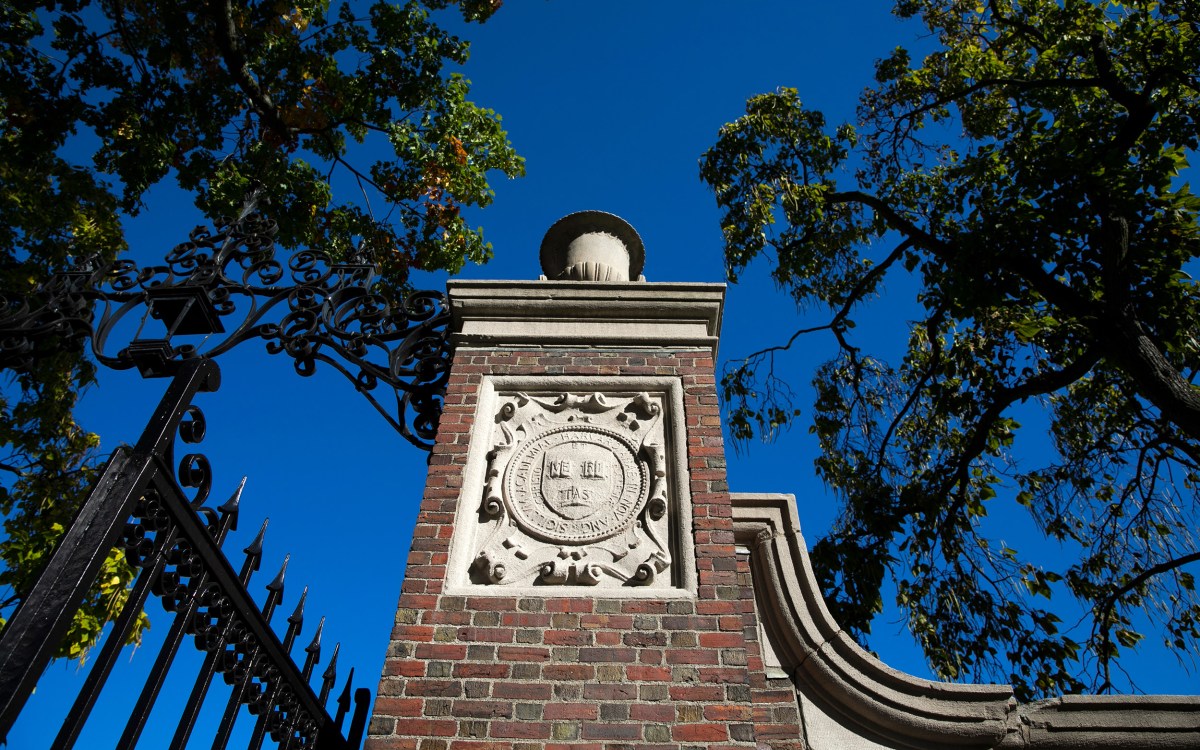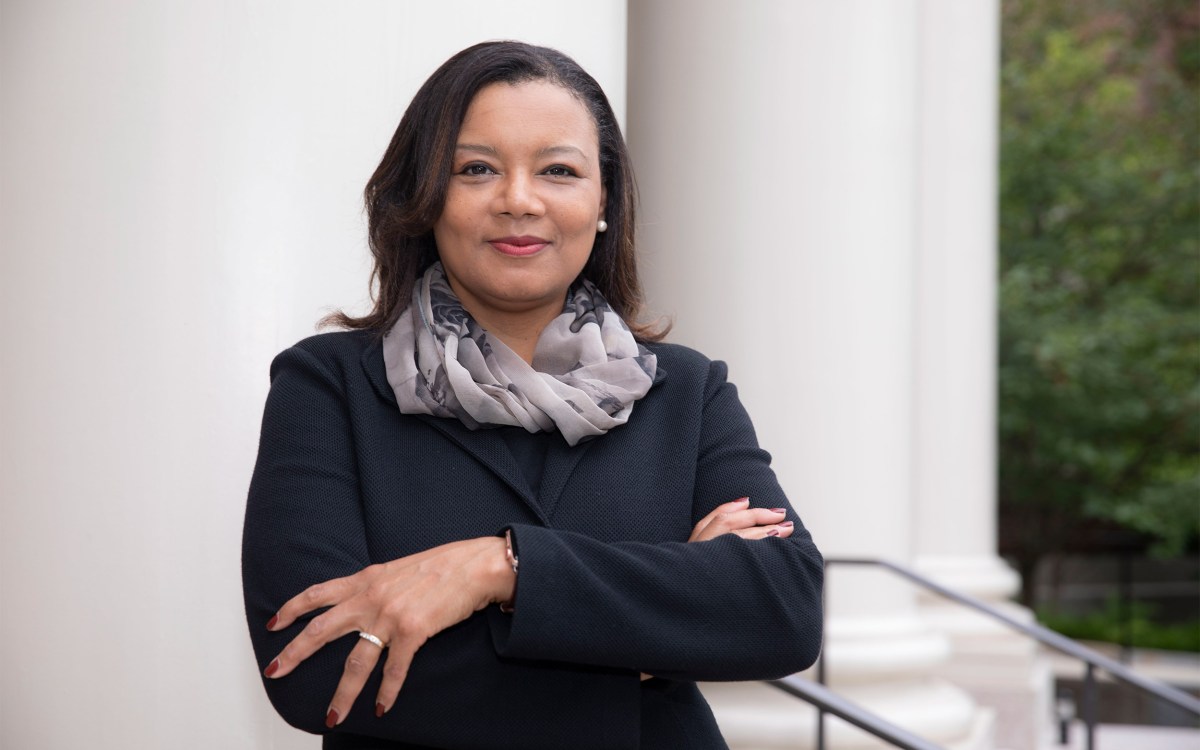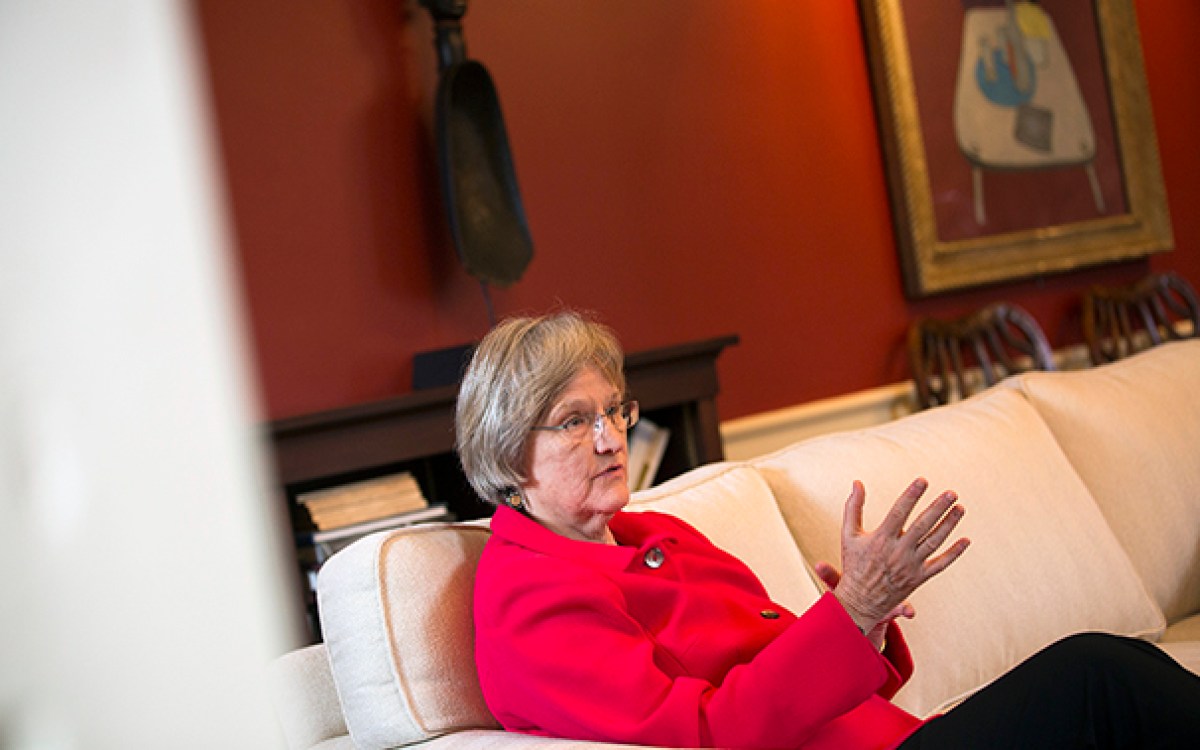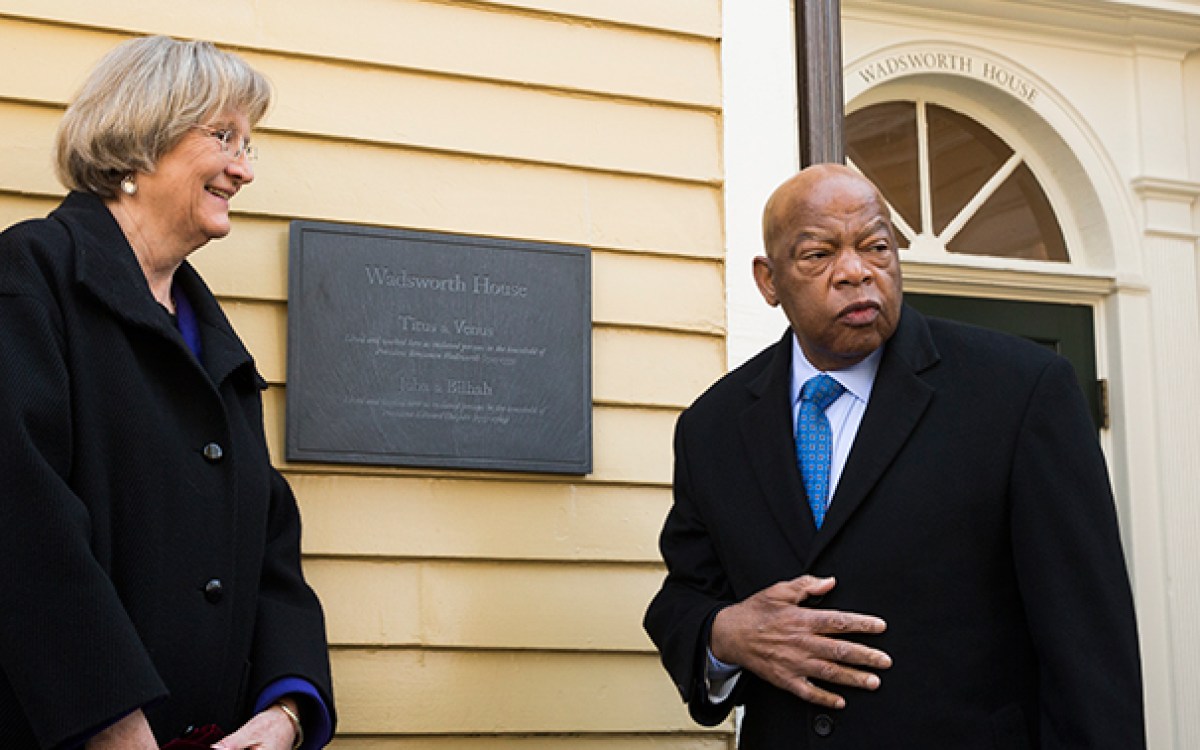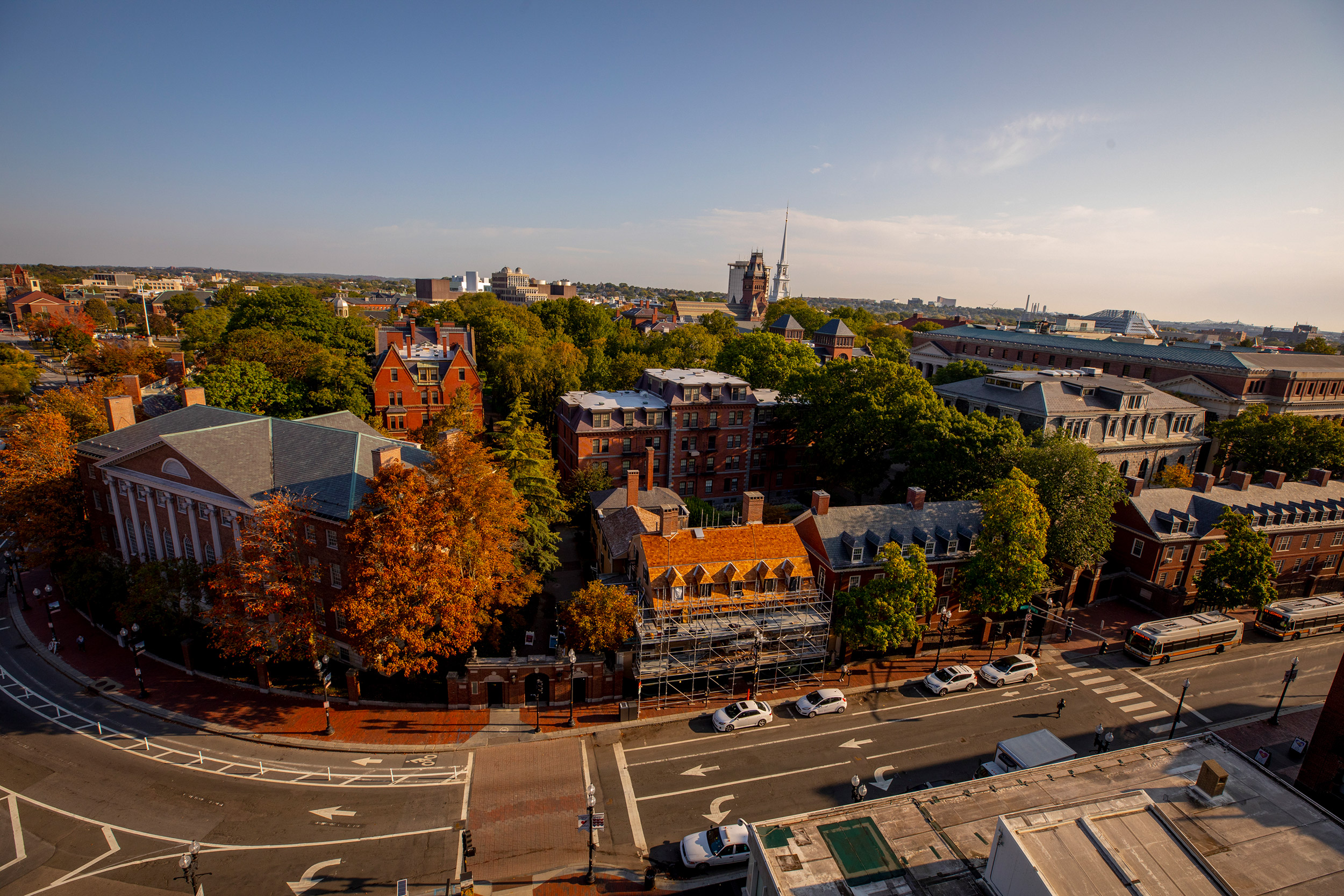
Rose Lincoln/Harvard file photo
Renaming committee seeks input from Harvard community
Panel looks at how to deal with statues, buildings, programs, professorships honoring controversial figures
Harvard’s Committee to Articulate Principles on Renaming has been hard at work over the past few months meeting with experts and administrators at Harvard and beyond to help guide their efforts to outline the process for when and how to replace contentious names on buildings, campus landmarks, programs, and professorships.
More like this
To help inform this work, committee members will begin soliciting input next week from members of the University through a series of open meetings, small group virtual conversations, online suggestion boxes, and more.
“Names have the power to help define a community and an identity,” said Drew Faust, Harvard president emerita and chair of the 16-member committee made up of faculty, alumni, students, and staff from across the University. “We want to have the broadest possible view of how individuals from different parts of the Harvard community regard the impact of names on the University and its culture, and we seek to understand how they believe names can best contribute to our shared future.”
Harvard is one of many institutions across the country and around the globe that have been reconsidering removing the names of controversial figures from campus buildings, statues, and other markers in recent months. In the fall, Harvard President Larry Bacow charged the committee, led by Faust, with creating guidelines for renaming campus features that honor those whose past “advocacy or support” of slavery, racism, sexism, and other practices today considered unacceptable. The University will use these principles to guide renaming decisions in the future.
Beginning today, students can sign up for office hours, small group online discussions with no more than 12 participants, including two members of the committee, to share their views. Open meetings for Harvard staff and postdoctoral researchers with members of the renaming committee are also listed on the committee’s outreach page. Committee representatives will also be attending faculty meetings across Harvard’s 11 graduate and professional Schools and working with members of the Harvard Alumni Association and representatives from the University’s graduate and undergraduate leadership to solicit feedback.
Members of the Harvard community can also respond to an online questionnaire with their own thoughts, or in response to a range of questions concerning how aspects of campus affect their sense of belonging; how the committee should factor in a notable figure’s positive contributions in addition to his or her failures and flaws; and how to ensure that renaming won’t result in erasing history.
“It’s been an amazing process so far,” said committee member Elijah DeVaughn ’21, a concentrator in history and literature with a secondary in African American studies who was recently named a Rhodes Scholar. “We’ve all had some really meaningful conversations about naming and what it means, and really how much is implicated in the process of naming and really how consequential this work is. And I think, because it is so consequential, we want all of our Harvard community members to have a say.”
Developing smaller focus groups with limited numbers of students was an important part of the process for DeVaughn, who is also a member of a subcommittee focused on outreach. Many undergraduates are confronted daily with disturbing legacies, he said, offering up the example of Mather House, the home to hundreds of students, which was named for Increase Mather, a Colonial clergyman and former Harvard president who owned enslaved people. “I thought it was really important to have more intimate spaces for students so we can really engage in a robust dialogue about what people think about these issues,” said DeVaughn.
As part of their research, committee members have met with the head of a renaming panel at Yale University and with Bacow to further discuss the group’s charge, said Faust. They have also spoken to Harvard Provost Alan Garber and Brian Lee, vice president of Alumni Affairs and Development, to discuss the Gift Policy Committee, which advises the provost on the development and oversight of the University’s policies on the solicitation, acceptance, and administration of charitable gifts, and the role of naming in philanthropy.
“We met as well with Robin Kelsey, chair of an FAS Committee on Harvard’s visual culture, to consider areas of shared interest and possible overlap,” said Faust, who is also the Arthur Kingsley Porter University Professor. “We have also complied a collection of reports on naming from several dozen other institutions [and] we have been able to identify issues that seem central to every group’s consideration of these matters and to begin to understand the origins of naming practices and their resonance throughout the University.”


